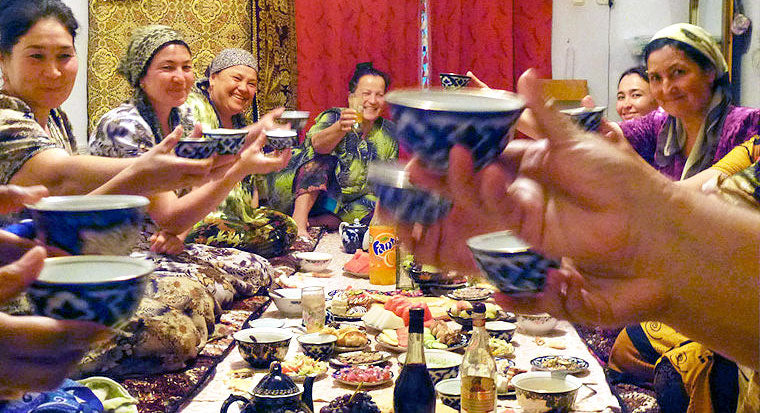But what is this Uzbek enthusiasm? 1st episode
•Posted on May 27 2021


| In 1989, I went to Central Asia for the first time. Strangely, this region enchanted me. Between the nomadic cultural past and the still Soviet present, there were very few objects to see. No flea market to browse. The local gastronomy was really not my cup of tea. But it was all the same at the table that I was bewitched. The state canteens were the only restaurants. In general in the open air whatever the temperature, we took place on small wooden platforms resembling the constructions in pallets which flourish in the cities at the moment. A central low table allowed 4 or 6 people to sit together. Sometimes the platform and the table were painted a naive and delicious sky blue. We were invariably served chicken rice or the traditional bowl of lukewarm mutton fat... but in what a bowl! A huge bowl, often dirty and greasy but always extraordinarily colorful and with designs that embodied the country. The flower interpreted in all its forms was that of the cotton fields*. The geometric design represented the weft of the traditional fabric in Bukhara and Samarkand: the ikat. The vine leaf is reminiscent of wine and grape juice from Uzbekistan. Designs were simple, stenciled in one color and sometimes brushed with gold. |

I remember having discovered wonders, at the bottom of certain bowls. Like a message in Cyrillic, painted by hand, congratulating Comrade Ghulamova on her excellent work or celebrating Comrade Arslonov's birthday.
Or cutely drawn Soviet bravado, for the flight of the dog Laïka or the birthday of Yuri Gagarin. It was a good time !? * Less bucolic: the intensive cultivation of cotton, nicknamed “white gold”, was imposed by the USSR in 1960 – with heavy ecological and sociological consequences in the region.
* Less bucolic: the intensive cultivation of cotton, nicknamed “white gold”, was imposed by the USSR in 1960 – with heavy ecological and sociological consequences in the region.
Or cutely drawn Soviet bravado, for the flight of the dog Laïka or the birthday of Yuri Gagarin. It was a good time !?
 * Less bucolic: the intensive cultivation of cotton, nicknamed “white gold”, was imposed by the USSR in 1960 – with heavy ecological and sociological consequences in the region.
* Less bucolic: the intensive cultivation of cotton, nicknamed “white gold”, was imposed by the USSR in 1960 – with heavy ecological and sociological consequences in the region.


